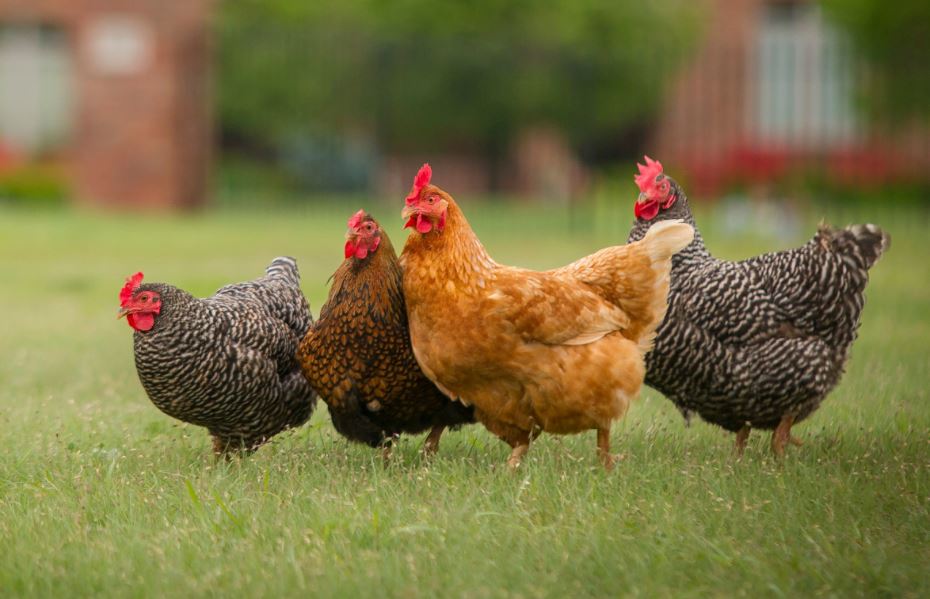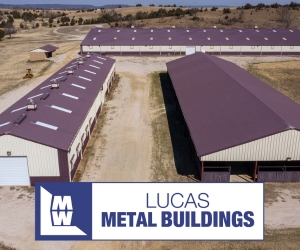
The following is a letter from State Veterinarian Dr. Rod Hall to veterinatians and anyone involved in poultry production regarding Highly Pathogenic Avian Influenza:
“Please warn your stakeholders to protect their flocks against HPAI, and please contact us if you encounter high numbers of sick/dead animals so we are aware and can begin planning in case it does turn out to be a disease that we take action on.
In Oklahoma, we had one commercial poultry farm infected in early 2022 and four commercial poultry farms infected in December 2024. We’ve had 10 backyard poultry flocks infected since the beginning of the outbreak. Thankfully, we’ve had no human cases that have been reported.
I want to discuss the latest case today. Monday night, I received a call from OADDL telling me they had received positive results for HPAI in some guineas that had been submitted by a private practitioner. This was a surprise because I had not been notified that there were any suspicious cases that were going to have testing performed. It is a law that a veterinarian, laboratory, or animal owner must notify the state veterinarian’s office if they suspect a foreign animal or highly consequential disease. By us not knowing anything about the pending testing, it put us trying to catch up, learn about the specifics of the case and the flock, notify the proper people, and begin making plans to handle the case. Thankfully, my team was able to contact the veterinarian and the poultry owner that night and get the response moving forward. The point is that, especially to the veterinarians reading this, please contact my office if you suspect a foreign animal, highly contagious, zoonotic, or otherwise consequential disease, and let us help you make sure it’s being handled appropriately.
I also want to use this case to illustrate a common theme in the backyard poultry cases we’ve seen. This flock had chickens, guineas, and ducks. The chickens stayed in a fairly small area, but the guineas and ducks were free range. The ducks especially went to a pond that was near the house where wild waterfowl visit. Almost every case we’ve seen in backyard flocks has a pond or other water source nearby that has wild waterfowl on it at least occasionally. Almost every case has either had the domestic poultry interact with wild waterfowl near the pond or the wild waterfowl come near the domestic poultry looking for food. This disease is very deadly to domestic poultry, especially chickens and turkeys. Please educate and warn your family, friends, neighbors, clients, and stakeholders to do everything they can to prevent interactions of their domestic poultry with wild waterfowl.
We receive some funding from USDA to do surveillance for HPAI. One way we utilize that funding is a program aimed at backyard poultry, If a flock owner is experiencing high numbers of sick or dead birds, they can contact my office. We’ll have one of our inspectors pick up one or two of the sick or dead birds and get them to OADDL for HPAI testing. If it is not HPAI, the lab will do a necropsy and other tests to help the owner understand what is causing the problem.
The Highly Pathogenic Avian Influenza outbreak is continuing to impact the United States and, to a lesser extent, Oklahoma. The outbreak began in very early 2022 and has resulted in the death of more than 140 million domestic poultry on more than 1,600 premises in all 50 states. The disease has spilled over into dairy cattle, and more than 975 herds in 18 states have been infected and suffered loss of milk production and sick cows. 70 humans have become ill from exposure to the virus from working on poultry or dairy farms.
So, the moral of the story is: Please warn your stakeholders to protect their flocks against HPAI, and please contact us if you encounter high numbers of sick/dead animals so we are aware and can begin planning in case it does turn out to be a disease we take action on.
Thanks for partnering with us in our work to keep Oklahoma livestock safe.”
Rod Hall, DVM | State Veterinarian
Oklahoma Department of Agriculture, Food and Forestry
2800 N. Lincoln Blvd. OKC, OK 73105
405.522.0270 | c. 580.257.0254
Email Rod Here
www.ag.ok.gov/ais
For Interstate Movement Requirements, go to https://www.interstatelivestock.com/.


















